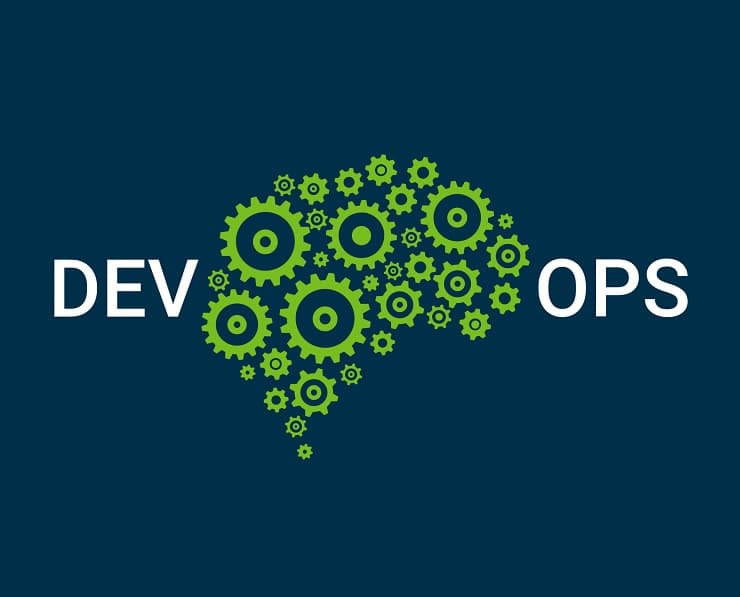Student Feedback
AWS Certified Database - Specialty Certification Video Training Course Outline
Introduction
Quick refresher on the basics
Amazon RDS and Aurora
Amazon DynamoDB and DAX
Amazon Redshift
Amazon ElastiCache
Amazon DocumentDB (with MongoDB ...
Amazon Neptune
Amazon Elasticsearch Service
Amazon Timestream
Amazon QLDB
Amazon Keyspaces (for Apache Cas...
Comparing AWS Databases
Database Migration, DMS and SCT
Monitoring, Logging and Encryption
CloudFormation and Automation
VPC - Networking
Other Topics
Exam preparation
Introduction
AWS Certified Database - Specialty Certification Video Training Course Info
AWS Certified Database Specialty Comprehensive Course
AWS Certified Database Specialty Exam Prep: Full Course for Beginners and Professionals
What You Will Learn From This Course
• AWS Database Ecosystem: Learn the complete range of AWS database services and discover the ideal use cases for each service to help you choose the right solution for different workloads.
• Hands-on Experience: Develop practical skills by working through real-world scenarios and projects that simulate actual database challenges and solutions on AWS.
• Exam Readiness: Gain the confidence and strategies needed to pass the AWS Certified Database Specialty (DBS-C01) exam with a deep understanding of exam objectives and question patterns.
• Best Practices: Understand proven industry methods for designing, deploying, managing, and analyzing databases in the AWS environment with a focus on performance, scalability, and security.
• Database Management: Master techniques for database operations, monitoring, troubleshooting, and maintenance across multiple AWS services.
• Service Integration: Learn how to integrate different AWS services such as RDS, DynamoDB, Redshift, and Aurora into scalable and secure database solutions.
• Security and Compliance: Explore database security, encryption, access control, and compliance strategies to keep data safe and meet organizational requirements.
Learning Objectives
This course is designed to help you build a solid foundation in AWS database technologies while preparing you to pass the AWS Certified Database Specialty (DBS-C01) exam. By the end of the training, you will be able to identify and evaluate AWS database services for various business needs, design and deploy database architectures, perform migrations, and apply best practices for security and performance. You will also be able to troubleshoot database issues, manage operations efficiently, and understand how to use AWS tools for monitoring and optimization. Whether you are aiming for certification or simply want to expand your expertise in AWS database solutions, the learning objectives will guide you through the essential concepts and practical skills needed for success in real-world environments.
Target Audience
This course is ideal for aspiring data engineers, cloud architects, database administrators, and IT professionals who want to enhance their AWS database knowledge. It is well-suited for individuals preparing for the AWS Certified Database Specialty exam and those looking to gain practical skills in cloud database management. Data scientists and developers who work with database-driven applications can also benefit from learning how AWS services can optimize performance and scalability. Business analysts, solution architects, and anyone responsible for managing or designing cloud database solutions will find valuable insights and actionable knowledge in this training.
Requirements
To get the most out of this course, you should have a basic understanding of cloud computing concepts and general database fundamentals. While not mandatory, familiarity with AWS core services such as EC2, S3, and IAM will make it easier to grasp advanced topics. A working knowledge of SQL or NoSQL databases is recommended for smoother learning and to better understand database design and query operations. Having access to an AWS Free Tier account is important so you can follow along with the hands-on exercises and practical labs included in the training.
Prerequisites
A basic knowledge of database concepts, such as relational and non-relational models, will help you understand the lessons more effectively and make it easier to follow the more advanced topics presented throughout the course. Familiarity with core database principles, including schema design, indexing, query optimization, and basic SQL commands, will provide a strong foundation for understanding how AWS database services operate in different use cases. Some experience with any cloud platform or traditional database systems can be beneficial, but it is not strictly required, as the course begins with an introduction to essential cloud computing concepts and gradually builds toward more complex tasks. Having a general understanding of computing fundamentals, such as networking, storage, and security, will also enhance your ability to grasp the relationships between AWS services and database management. Basic knowledge of Linux or Windows server environments can be helpful when working with command-line tools and performing administrative tasks, but all exercises are explained step by step for beginners. An eagerness to learn and a willingness to explore AWS services through hands-on practice will be key to mastering the skills taught in this course, as practical experimentation is a core part of the learning experience. Access to an AWS Free Tier account is strongly recommended so you can complete the labs, create sample databases, and test different configurations without incurring significant costs. A reliable internet connection and a computer capable of running a modern web browser are necessary to participate in the online lessons, perform exercises, and access AWS documentation. While programming knowledge is not a requirement, familiarity with scripting languages such as Python, Bash, or PowerShell can be an advantage when exploring automation features and database integration scenarios. Overall, the most important prerequisites are a strong motivation to learn, the ability to dedicate regular time to study, and the curiosity to experiment with AWS tools and services to develop practical skills that will remain valuable in real-world cloud database projects.
Course Description
AWS Certified Database Specialty (DBS-C01) will be retired, but mastering AWS database services continues to be highly valuable for cloud professionals. This course introduces you to all major AWS database offerings and provides the knowledge required to design, deploy, and manage database solutions in the cloud. The training is structured to prepare you for the AWS Certified Database Specialty exam while equipping you with practical skills to work confidently with AWS databases in professional settings. Through a balanced mix of theory and real-world demonstrations, you will learn how to create and manage scalable database architectures, implement migrations, and apply monitoring and troubleshooting strategies. The course covers key services such as Amazon RDS, Aurora, DynamoDB, Redshift, Neptune, and DocumentDB, ensuring you gain a well-rounded understanding of the AWS database ecosystem. You will explore topics such as database design principles, deployment options, management and operation techniques, security best practices, and service integrations. Each lesson is carefully designed to help you build confidence and technical expertise. Practice exercises and exam tips are included to reinforce your understanding and prepare you for the certification test. Even though the official exam is scheduled for discontinuation, the skills you develop in this course remain relevant and valuable for cloud database careers. Whether you aim to become a certified database specialist or simply need to strengthen your knowledge of AWS database services, this training provides a comprehensive and practical pathway to achieve your goals.
Course Contents
The course begins with an introduction to AWS and its certification pathways, helping you understand how AWS certifications can advance your career. You will then explore the full range of AWS database services, learning how to select the right service based on performance, scalability, and cost requirements. Detailed lessons on database design, deployment, and migration will show you how to create effective and secure architectures. The course also covers management and operation techniques, including monitoring tools and troubleshooting methods to maintain database health and availability. A dedicated section on database security will guide you through access control, encryption, and compliance considerations. To help you test your knowledge, practice exercises and sample exam questions are provided. Finally, the course concludes with a summary module offering additional learning resources and guidance for future AWS certifications and database projects.
Who This Course Is For
This course is designed for data engineers, database administrators, cloud architects, developers, and IT professionals who want to expand their expertise in AWS database services and strengthen their career prospects in the cloud computing field. It is especially valuable for individuals preparing for the AWS Certified Database Specialty exam, as it provides a complete understanding of AWS database solutions, deployment strategies, and best practices. Professionals already working with on-premises or hybrid database systems will benefit from learning how to migrate, optimize, and manage databases in a fully cloud-based environment. Database administrators looking to transition into cloud operations can use this training to gain the skills required to manage relational and non-relational services such as Amazon RDS, Aurora, DynamoDB, Redshift, and DocumentDB. Data engineers and data analysts will find the course helpful for mastering data modeling, query optimization, and analytics workflows that leverage AWS tools for real-time processing and large-scale data management. Cloud architects and solutions architects can use the knowledge gained to design highly scalable, secure, and cost-efficient database infrastructures for enterprise applications and big data projects. Developers building data-driven applications can take advantage of the hands-on labs to understand how to integrate AWS databases with modern applications, APIs, and serverless architectures. This course also suits technology managers, team leads, and decision-makers who need to evaluate AWS database services for organizational adoption or future projects. Students, recent graduates, and technology enthusiasts with a passion for learning cutting-edge cloud technologies will benefit from the step-by-step approach, which introduces concepts from the ground up while providing practical examples and real-world scenarios. Even professionals from non-technical backgrounds who aim to move into database-related roles in cloud computing can use this course as a bridge to gain the foundational knowledge and confidence needed to enter the field. Whether you are seeking to advance within your current organization, explore freelance opportunities, or launch a new career in cloud data management, this course provides the technical depth and practical guidance to help you achieve your goals and remain competitive in a fast-evolving technology landscape.
Course Modules / Sections
The course is designed with a clear and structured layout to guide learners from the fundamentals of AWS database services to advanced implementation strategies. It begins with an introductory module that explains the AWS ecosystem, its core database services, and the importance of cloud-based data management. This foundation helps learners understand how AWS database services fit within modern IT infrastructures and the types of problems they solve. The next module focuses on relational database services, covering Amazon RDS and Amazon Aurora in detail. Learners explore deployment models, database engines, scaling options, and how to optimize performance for various workloads. Real-world examples and hands-on exercises are included to reinforce practical knowledge. Following this, a module on non-relational databases introduces Amazon DynamoDB and DocumentDB, highlighting use cases such as high-performance web applications and flexible data storage. Learners gain experience with designing key-value and document-based databases, understanding partitioning, and managing scalability in production environments. Another critical module addresses data warehousing and analytics through Amazon Redshift, where students learn about data ingestion, query optimization, and integration with business intelligence tools. Graph and time-series databases are covered in a specialized module featuring Amazon Neptune and Timestream, allowing students to work with connected data and time-based datasets. Additional modules cover database migration strategies using AWS Database Migration Service, monitoring and troubleshooting with CloudWatch, performance tuning, and cost management. Security-focused lessons explain encryption methods, identity and access management, and compliance requirements for regulated industries. The course concludes with a comprehensive module dedicated to exam preparation, offering a detailed breakdown of the AWS Certified Database Specialty exam structure, practice tests, and tips for effective study planning. Each module is designed to build on the previous one, ensuring a logical progression from basic concepts to expert-level skills while incorporating hands-on labs and real-world scenarios.
Key Topics Covered
The course covers a wide range of topics essential for mastering AWS database services and preparing for the certification exam. Core concepts include relational and non-relational database design, best practices for schema modeling, and strategies for optimizing read and write operations. Learners explore Amazon RDS in depth, including multi-AZ deployments, read replicas, backup and recovery, and database engine configurations for MySQL, PostgreSQL, Oracle, and SQL Server. Amazon Aurora is examined for its advanced performance features, distributed storage architecture, and global database capabilities. In the non-relational category, the course provides detailed coverage of Amazon DynamoDB, including partition keys, global tables, streams, and on-demand capacity planning. Amazon DocumentDB is introduced with a focus on compatibility with MongoDB workloads and strategies for efficient document storage. The data warehousing section explores Amazon Redshift cluster configurations, workload management, and performance tuning to handle large-scale analytics. Learners also study Redshift Spectrum and integrations with services like AWS Glue and QuickSight for advanced analytics workflows. Amazon Neptune is covered for graph database use cases such as social networks and fraud detection, with lessons on Gremlin and SPARQL query languages. Amazon Timestream is introduced for time-series data applications like IoT and operational monitoring. Additional key topics include database migration planning, schema conversion, and replication using AWS Database Migration Service. Monitoring and management lessons teach how to use CloudWatch, CloudTrail, and AWS Config to maintain database health and compliance. Security topics include encryption at rest and in transit, key management using AWS KMS, and access control through IAM policies and roles. Cost optimization strategies are also discussed, helping learners design database solutions that balance performance and budget considerations. These topics collectively ensure that students gain both the theoretical understanding and practical skills needed to deploy, operate, and scale databases effectively in the AWS environment.
Teaching Methodology
The course uses a combination of teaching methods to ensure students gain both conceptual knowledge and hands-on experience. Each topic is first introduced through detailed video lectures that explain the theory behind AWS database services, their architecture, and practical use cases. Visual diagrams and real-world examples are used throughout to simplify complex concepts and show how different services integrate within cloud-based systems. Following each lecture, step-by-step demonstrations guide students through the AWS Management Console and command-line interface, providing practical exposure to service configuration and database operations. Hands-on labs are a key component of the teaching methodology, allowing learners to create and manage databases in a controlled AWS environment. These labs encourage experimentation and problem-solving, helping students build confidence in their ability to apply what they have learned. To reinforce understanding, downloadable resources such as reference guides, architectural diagrams, and configuration checklists are provided for offline study. Each module concludes with review sessions that summarize key points and highlight best practices for database design, security, and cost management. Quizzes and short practice exercises are strategically placed to test comprehension and ensure students can recall and apply critical concepts. The course also emphasizes learning through real-world scenarios, presenting case studies that mirror common challenges faced by database professionals. Students are encouraged to work through these scenarios to develop solutions using AWS tools and services. This blended approach of lectures, demonstrations, labs, and practice exercises ensures that learners not only understand AWS database concepts but can also implement them effectively in practical situations.
Assessment & Evaluation
Assessment and evaluation are integral parts of the course to help learners measure their progress and identify areas for improvement. Each module includes quizzes that test understanding of key topics, ensuring students retain critical information before moving on to more advanced sections. These quizzes feature multiple-choice questions similar to those found on the AWS Certified Database Specialty exam, providing valuable practice with the exam format. Hands-on lab assignments are another important evaluation tool, requiring students to apply their knowledge by configuring database services, implementing security settings, or troubleshooting common issues. Feedback is provided for each lab, highlighting correct approaches and explaining any mistakes to enhance learning. Mid-course assessments combine theoretical questions with practical tasks to evaluate both conceptual understanding and real-world skills. A comprehensive final practice test simulates the AWS Certified Database Specialty exam, offering a timed environment with a range of question types. This practice exam helps students gauge their readiness for certification and identify topics that require further review. In addition to automated assessments, students are encouraged to participate in peer discussions and share solutions to lab challenges, fostering collaborative learning and deeper comprehension. The instructor provides regular updates and guidance to ensure learners stay on track and have the resources needed to succeed. By combining quizzes, labs, practice exams, and interactive discussions, the course creates a thorough evaluation framework that not only prepares students for certification but also builds the confidence and competence required to manage AWS database services in professional environments.
Benefits of the Course
Enrolling in this AWS Database Specialty course provides a wide range of benefits for professionals, students, and anyone seeking to advance their skills in cloud database technologies. One of the key advantages is the opportunity to gain a comprehensive understanding of the entire AWS database ecosystem, covering both relational and non-relational services. Learners develop expertise in Amazon RDS, Aurora, DynamoDB, Redshift, DocumentDB, and other core services, which are essential for designing scalable and secure database solutions. This knowledge equips students with practical skills that are directly applicable to real-world projects, making them valuable assets to employers in industries such as technology, finance, healthcare, and e-commerce. Another major benefit is the focus on hands-on experience through guided labs and demonstrations. Instead of relying solely on theory, the course encourages learners to work with AWS services in a live environment, which builds confidence and practical problem-solving abilities. This approach ensures that students are not only prepared for the AWS Certified Database Specialty exam but are also capable of applying their skills in professional scenarios. The course also provides strategic insights into database design, deployment, migration, and performance optimization, giving students the ability to create efficient and cost-effective solutions. For those seeking career advancement, completing this course can lead to new job opportunities or promotions in roles such as cloud database engineer, data architect, or solutions architect. The inclusion of exam tips and practice exercises enhances the learning experience by helping students prepare thoroughly for certification, which remains a respected credential even as AWS updates its certification programs. In addition, the course strengthens problem-solving, troubleshooting, and critical thinking skills, which are essential for managing complex database environments. By mastering AWS database services, learners can confidently contribute to projects involving large-scale data management, analytics, and application development, positioning themselves as experts in one of the fastest-growing areas of cloud technology.
Course Duration
The course is designed to provide an in-depth learning experience while remaining flexible enough to accommodate different schedules and learning paces. On average, students can expect to complete the training within four to six weeks if they dedicate consistent time each week to study and hands-on practice. The total video content spans approximately 20 to 25 hours, broken down into manageable modules that allow for focused learning on specific topics. Each module is carefully structured to balance theoretical lessons, practical demonstrations, and lab exercises, ensuring steady progress without overwhelming the learner. The inclusion of quizzes, practice tests, and review sessions extends the overall duration slightly, but these components are essential for reinforcing knowledge and preparing for the AWS Certified Database Specialty exam. For those who prefer an accelerated learning path, the course can be completed in two to three weeks by dedicating several hours each day to study. Conversely, learners with limited availability can progress at a slower pace, taking up to eight weeks to fully absorb the material and complete all exercises. The self-paced format allows students to revisit modules as needed, ensuring they fully understand key concepts before moving forward. This flexibility makes the course suitable for working professionals, students, and individuals balancing multiple commitments. By the end of the course, learners will have dedicated enough time to develop both the conceptual understanding and practical skills necessary to manage AWS database services effectively and confidently attempt the certification exam.
Tools & Resources Required
To get the most out of this course, students will need access to a few essential tools and resources. The most important requirement is an active AWS account, preferably using the AWS Free Tier to minimize costs during hands-on exercises. The Free Tier provides limited access to key services such as Amazon RDS, DynamoDB, and S3, allowing learners to practice database creation, configuration, and management without incurring significant expenses. A computer with a stable internet connection is necessary for streaming video lectures, accessing the AWS Management Console, and completing practical labs. The course can be followed on Windows, macOS, or Linux operating systems, provided the computer has a modern web browser such as Chrome, Firefox, or Edge. While not mandatory, having a dual-monitor setup can be helpful, enabling students to watch demonstrations on one screen while working in the AWS environment on the other. A basic text editor or integrated development environment (IDE) such as Visual Studio Code is recommended for writing SQL queries, creating configuration files, and managing scripts. Access to command-line tools such as the AWS CLI is encouraged for learners who wish to explore advanced configurations and automation techniques. The course provides downloadable resources, including reference guides, architectural diagrams, and sample queries, which can be saved for offline study. Students are also encouraged to use AWS documentation and the AWS Well-Architected Framework as supplementary resources to deepen their understanding of database best practices. Reliable note-taking tools, whether digital or traditional, can help learners organize key insights and exam tips as they progress through the modules. With these tools and resources in place, students will have everything needed to follow along with the lessons, complete hands-on labs, and develop practical skills that can be applied to real-world database projects.
Career Opportunities
Completing this AWS Database Specialty course opens doors to a wide range of career opportunities in cloud computing and data management. As organizations continue to migrate to the cloud and build data-driven applications, professionals with expertise in AWS database services are in high demand. One of the most prominent roles for graduates of this course is that of a cloud database engineer, where responsibilities include designing, deploying, and managing scalable database solutions using services such as Amazon RDS, DynamoDB, Redshift, and Aurora. Data engineers can leverage the skills gained in this course to build data pipelines, integrate multiple data sources, and ensure high-performance analytics across large datasets. Database administrators with AWS expertise are well-positioned to oversee cloud-based databases, implement automation, and optimize cost and performance for businesses transitioning from on-premises systems to AWS. Solutions architects and cloud architects can use their understanding of database services to create end-to-end application infrastructures that meet complex business requirements. Professionals in data science and analytics can also benefit by learning how to access, store, and manage data efficiently in AWS, enabling advanced machine learning and big data projects. Industries such as finance, healthcare, e-commerce, logistics, and entertainment increasingly rely on AWS for mission-critical database solutions, creating opportunities for specialists in roles like database migration consultant, DevOps engineer, and cloud operations manager. The knowledge acquired in this course also provides a strong foundation for freelance consulting or independent project work, allowing professionals to assist businesses in designing and implementing cloud database strategies. Certification as an AWS Database Specialty professional adds credibility and recognition, helping candidates stand out in competitive job markets. Even though the specific AWS Database Specialty exam may be retired, the skills developed remain directly applicable to other AWS certifications and to real-world roles that require mastery of cloud database management.
Conclusion
AWS database services form the backbone of many modern applications and data-driven enterprises, making expertise in this area a valuable asset for any technology professional. This course offers a comprehensive pathway to understanding and applying these services, from relational and non-relational databases to advanced analytics and security strategies. Through detailed lessons, practical demonstrations, and guided labs, learners build both theoretical knowledge and hands-on skills, ensuring they are ready to design and manage database solutions in a professional environment. The course not only prepares students for certification but also equips them to handle real-world challenges such as database migration, performance optimization, and cost management. By exploring key services like Amazon RDS, Aurora, DynamoDB, Redshift, and Neptune, learners gain a complete understanding of how to leverage AWS for scalable, secure, and efficient database management. The structured approach of the training allows participants to progress from foundational concepts to advanced implementations, making it suitable for both beginners and experienced professionals. The combination of technical depth and practical exercises ensures that students leave the course with the confidence to work on cloud database projects, contribute to organizational goals, and pursue career advancement in a rapidly growing industry.
Enroll Today
Now is the ideal time to invest in learning AWS database technologies and expanding your career opportunities. Cloud computing continues to grow across every sector, and organizations are seeking professionals who can design and maintain secure, scalable, and cost-effective database solutions. By enrolling in this course, you will gain immediate access to a structured learning path that combines expert instruction, real-world demonstrations, and practical labs to accelerate your understanding of AWS database services. You will learn how to evaluate and implement solutions using Amazon RDS, Aurora, DynamoDB, Redshift, DocumentDB, Neptune, and other critical services, giving you the skills to excel in cloud-based database management. The self-paced format allows you to learn at a speed that fits your schedule while ensuring that every topic is covered in depth. Whether you are aiming to enhance your professional credentials, transition into a new role, or build the technical skills required to lead cloud database projects, this course provides the tools and guidance you need to succeed. Hands-on exercises and downloadable resources ensure that you gain practical experience while reinforcing key concepts, making your learning journey both engaging and effective. Enrolling today gives you access to knowledge that will remain valuable even as AWS certifications evolve, empowering you to adapt to new technologies and industry trends. Take the next step toward a rewarding career in cloud computing by joining this course and gaining the skills that employers across the globe are looking for.













